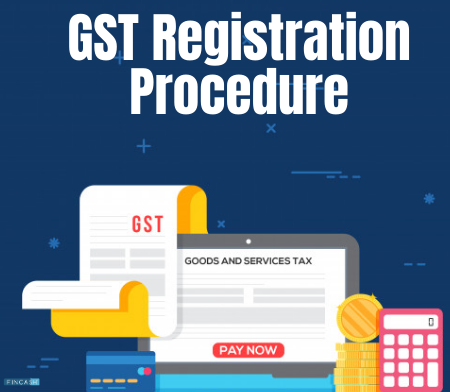Professional Tips for Selecting the most effective GST Registration Services in Singapore
Professional Tips for Selecting the most effective GST Registration Services in Singapore
Blog Article
Throughout: The Ultimate Roadmap to GST Enrollment for Businesses Looking For Financial Security
Browsing the intricacies of Goods and Provider Tax (GST) registration is a vital action for companies pursuing monetary stability. From comprehending the essential concepts of GST to abiding with post-registration standards, the process can appear discouraging at first glance. Nonetheless, damaging down the roadmap into convenient actions can enhance the registration trip for companies wanting to boost their economic standing. Let's explore the crucial parts that compose this utmost roadmap and discover just how each phase adds to laying a solid structure for economic success.
Recognizing GST Basics
Looking into the essential concepts of Item and Services Tax (GST) is essential for gaining a detailed understanding of its ramifications on organizations and the economic situation. GST is a value-added tax imposed on a lot of products and solutions for residential usage. It has actually replaced numerous indirect tax obligations that existed in the pre-GST period, streamlining the tax obligation structure and enhancing ease of doing company in India. Under the GST system, both products and services are tired at a specific rate, which is identified based on their category. If their annual turn over exceeds the threshold limitation established by the federal government, companies are needed to register for GST. Input Tax Obligation Credit Report (ITC) is a considerable feature of GST, allowing services to claim credit history for taxes paid on inputs, decreasing the total tax obligation worry. Understanding the essentials of GST is critical for businesses to follow tax obligation regulations, manage their finances successfully, and add to the nation's economic development by taking part in a transparent tax system.
Qualification Requirements for Registration
To register for GST, businesses need to satisfy certain qualification criteria established by the government. The primary eligibility requirement is that any type of business associated with the supply of items or services with a yearly accumulation turnover above the threshold limitation set by the authorities have to sign up for GST. As of the present regulations, the threshold restriction for GST registration is a yearly accumulation turn over of 40 lakhs for organizations operating within a state, except for special group states where the limit is 20 lakhs. In addition, specific businesses are required to sign up for GST regardless of their turn over, such as interstate providers, casual taxed persons, and businesses reliant pay tax under the reverse cost device. It is important for services to extensively assess their turnover and deal kinds to determine their GST registration obligations accurately. Failing to sign up for GST when eligible can lead to charges and lawful consequences, making it vital for businesses to comply with the defined eligibility criteria.
Records Required for Registration
Having actually satisfied the eligibility standards for GST enrollment, businesses have to now ensure they have the requisite papers in area to continue with the enrollment procedure effectively. The records needed for GST enrollment typically consist of evidence of service constitution, such as collaboration deed, registration certificate, or incorporation certificate for different kinds of organizations. Furthermore, organizations need to provide documents establishing the principal area of company, such as a rental agreement or electricity bill.
Step-by-Step Registration Process
Commencing the GST you can try this out enrollment procedure includes a series of structured actions to make certain a seamless and certified registration for companies. The initial step is to go to the GST website and load out the enrollment form with precise details of the company entity. Following this, the applicant receives a Temporary Recommendation Number (TRN) which is made use of to resume the application process if it's not finished in one go.
Next, all called for records as per the checklist provided by the GST portal requirement to be submitted. These records normally consist of proof of service address, identity and enrollment proofs of promoters, economic statements, and business entity's frying pan card.

Post-Registration Conformity Guidelines

Final Thought
In conclusion, services seeking monetary security should recognize the basics of GST, meet eligibility standards, collect needed documents, comply with check my reference the detailed enrollment process, and follow post-registration guidelines - Best GST registration services in Singapore. By sticking to these steps, businesses can ensure conformity with tax obligation laws and keep financial stability in the future
Additionally, particular companies are needed to register for GST regardless of their turn over, such as interstate providers, informal taxable individuals, and companies responsible to pay tax under the reverse fee device.Having satisfied the qualification criteria for GST registration, services need to currently guarantee they have the requisite files in location to continue with the enrollment procedure efficiently. The records required for GST enrollment usually include evidence of business constitution, such as partnership deed, registration certification, or consolidation certification for various types of companies. Furthermore, organizations require to give records developing the primary area of company, such as a rental arrangement or power costs.Beginning the GST registration procedure entails a series of structured actions to ensure a compliant and seamless registration for services.
Report this page